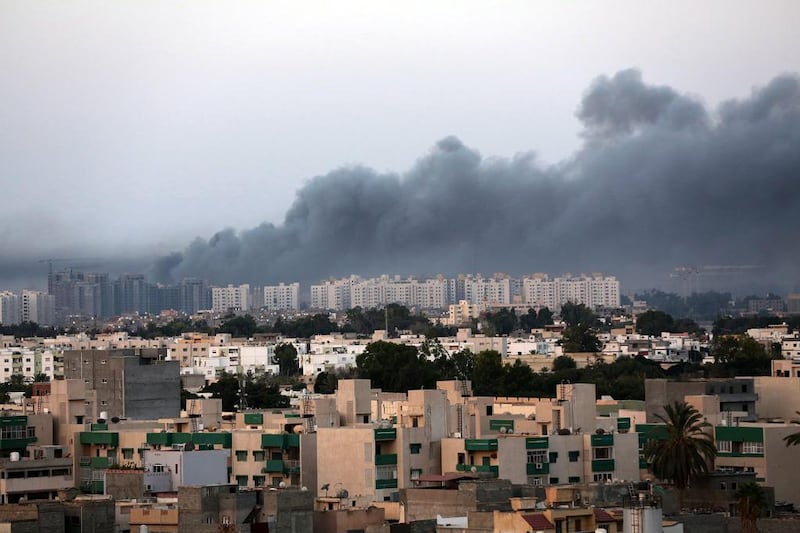Libya’s fractious factions have yet again rejected a proposal to end the conflict. After months of talks between the rival groups, the UN envoy Bernardino Leon on Monday presented a unity plan, the chief plank of which was a year-long government of national unity. The next day, the plan was rejected.
This autumn will mark four years since Libya’s long-time ruler Muammar Qaddafi was killed. Libya has not been at peace since. Indeed, today the situation is more intractable than ever, with the country split into various factions, at least two of which claim legitimacy: the parliament in the eastern city of Tobruk, which is recognised by the international community, and the General National Congress in the capital Tripoli, which the wider world refers to as the “self-declared government”.
But while the fighting and arguing has continued, a new threat has been emerging. In the past two days, militants claiming allegiance to ISIL have taken over a critical power plant in Sirte in the centre of the country. The extremist group has used the cover of chaos to expand its power and may now have many hundreds, perhaps thousands, of fighters in the country.
Yet, strange as it seems, ISIL is actually the lesser danger for Libya. The lack of reconciliation is the greatest threat to both the integrity of Libya and the greatest obstacle to its prosperity.
This message appears to be lost on the quarrelling factions. Libya is not a poor country; it is rich in oil. Every month – every day – that passes without reconciliation is a day that its oil wealth cannot be used to rebuild the country. Yet the militias persist in the belief that there is a military solution to Libya’s problems. There isn’t. After so many months of conflict, it should be clear that while ISIL can be defeated by military means, the disagreements over the fate of Libya will not be solved by force of arms.
ISIL thrived in the chaos of Syria and between the cracks that lay within the internal politics of Iraq. By continuing to focus on their internal disagreements, both political groups in Tobruk and Tripoli are allowing the militants to have free rein. If they continue on this course, they may swiftly find that ISIL’s advances mean there is no country left for them to fight over.





